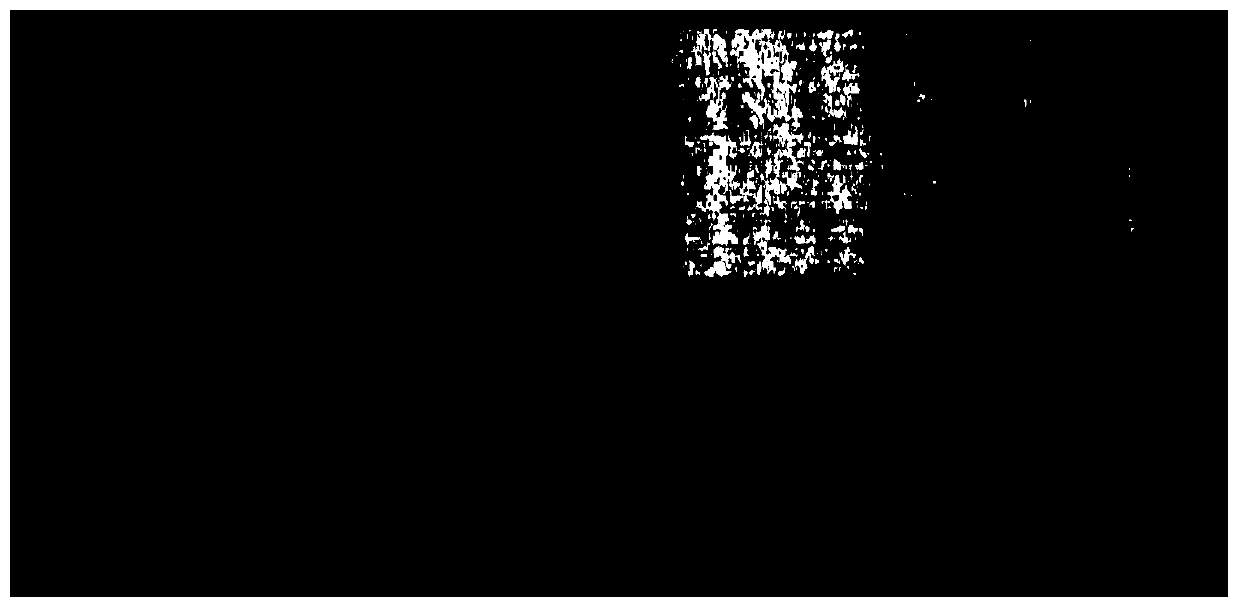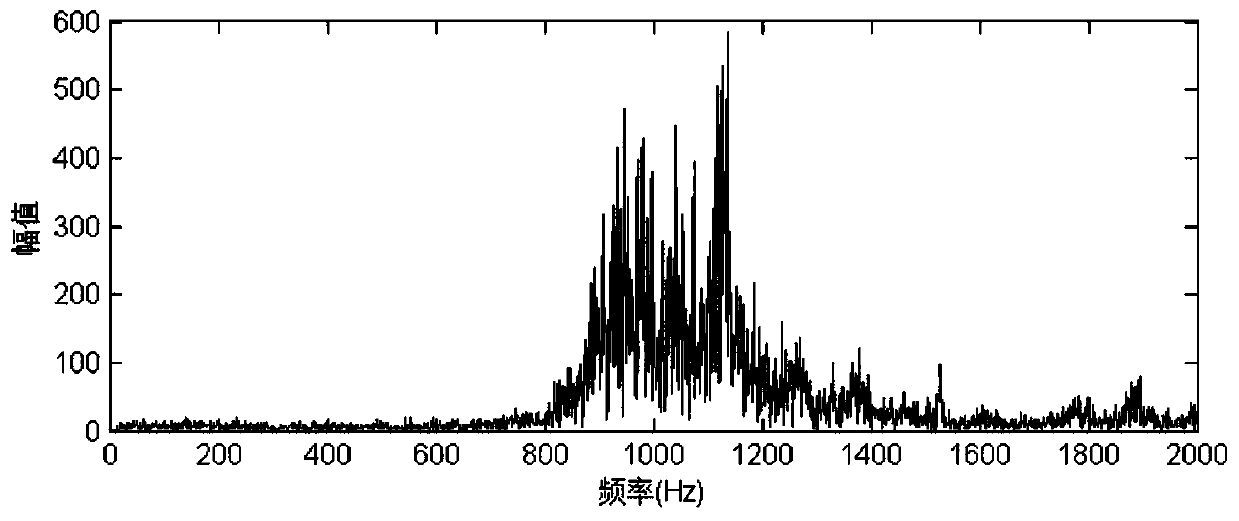Automatic detection and extraction method for low and medium frequency line spectrums of ship radiation noise
A radiation noise and automatic detection technology, which is applied to pattern recognition in signals, character and pattern recognition, instruments, etc., can solve problems such as the inability to automatically detect and extract low-frequency line spectrum features, missing detection of weak low-frequency line spectrum, etc., and achieve improvement The effect of automatic extraction ability, improving the level of intelligence, and optimizing the effect
- Summary
- Abstract
- Description
- Claims
- Application Information
AI Technical Summary
Problems solved by technology
Method used
Image
Examples
Embodiment 1
[0032] Use the method that the present invention provides to extract the radiation noise low-frequency line spectrum of ship A, the flow chart is as follows figure 1 shown. figure 2 It is a screenshot of the low-frequency history map of the radiation noise of ship A displayed on a certain device. The abscissa of the screenshot is "frequency (Hz)", and the ordinate is "time (s)".
[0033] It can be observed from the screenshots that there are weak target line spectrum components near 275Hz and 551Hz, but due to the high energy of the high-frequency band of ship radiation noise, the low-frequency line spectra of the two targets at 275Hz and 551Hz are very weak in comparison. Possesses clearly identifiable characteristics.
[0034] If the traditional Fourier transform method is used to calculate the spectrum of the radiated noise signal of ship A, the two target low-frequency line spectra at 275 Hz and 551 Hz are submerged in the noise interference.
Embodiment approach
[0036] Step 1: Use the acquisition card to collect the radiated noise of the target ship A, and the sampling frequency is 5kHz. .
[0037] Step 2: Select the ship A radiation noise signal with a time length of T=30s, and divide it into N=30 frames according to the time length of each frame t=1s. Using the existing Fourier transform method to calculate the frequency spectrum of each frame of ship radiation noise signal, and obtain the frequency spectrum of one frame of ship A radiation noise— image 3 ; After completing the spectrum calculation of all 30 frames, add and accumulate the spectrum of 30 frames to obtain the accumulated spectrum map of 30 frames of radiation noise of ship A ( Figure 4 ).
[0038] To further illustrate the principle, the Figure 4 The weak line spectrum of 200-600Hz is locally enlarged to obtain Figure 5 ; It can be seen from the comparison that Figure 4 There are only weak line spectrum features at 275Hz and 551Hz, which are far smaller than...
Embodiment 2
[0045] Figure 10 The multi-time accumulation spectrum diagram of the radiated noise of ship B is given. The low-frequency line spectrum of ship B is relatively clear, and both the existing method and the method of the present invention can be used to extract the line spectrum features, but the line spectrum results of the method of the present invention have fewer interference line spectra and the features are more pure.
[0046] Step 1: Use the acquisition card to collect the radiation noise of the target ship B, and the sampling frequency is 5kHz.
[0047] Step 2: Also select the radiation noise signal of ship B with a time length of T=30s, and divide it into N=30 frames according to the time length of each frame t=1s. Then the spectrum of 30 frames is added and accumulated to obtain the accumulated spectrum of ship radiation noise.
[0048] Figure 10 is the accumulated spectrogram of 30 frames of ship B radiation noise. As can be seen, Figure 10 There are obvious li...
PUM
 Login to View More
Login to View More Abstract
Description
Claims
Application Information
 Login to View More
Login to View More - Generate Ideas
- Intellectual Property
- Life Sciences
- Materials
- Tech Scout
- Unparalleled Data Quality
- Higher Quality Content
- 60% Fewer Hallucinations
Browse by: Latest US Patents, China's latest patents, Technical Efficacy Thesaurus, Application Domain, Technology Topic, Popular Technical Reports.
© 2025 PatSnap. All rights reserved.Legal|Privacy policy|Modern Slavery Act Transparency Statement|Sitemap|About US| Contact US: help@patsnap.com



